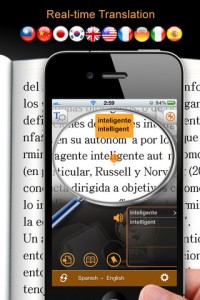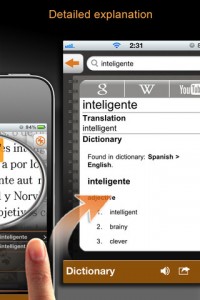Did you use Wikipedia in 2012? Probably a silly question, as according to Alexa, 12.80% of all web users yesterday visited the online encyclopaedia, as part of their online day. The 3 month average reach of Wikipedia.org is 12.575%, so yesterday’s figure was no anomaly.
I usually visit Wikipedia multiple times a week.
 The fact that Wikipedia is open source is good, as it enables it to use the help of millions of people around the world to build its massive online encyclopaedia. Open source does however also leave it open to vandalism, as on most articles, nobody needs to verify your changes. Many Wikipedia articles are very accurate though, and they are getting better year on year.
The fact that Wikipedia is open source is good, as it enables it to use the help of millions of people around the world to build its massive online encyclopaedia. Open source does however also leave it open to vandalism, as on most articles, nobody needs to verify your changes. Many Wikipedia articles are very accurate though, and they are getting better year on year.
In 2012, what was it you Wikied? A few days ago, Wikipedia released a list of the most popular pages visited on its site, segmented by country. The statistics make interesting reading, if you get some time.
With 32,647,942 views in 2012, Facebook topped Wikipedia’s list for the most visited English page. Wiki came in second with 29,613,759 views. Deaths in 2012, One Direction, The Avengers (2012 film), Fifty Shades of Grey and the 2012 phenomenon all had over 20 million views. The Dark Knight Rises, Google and The Hunger Games (all with 18+ million views) made up the rest of the English top 10 list.
For all of the top 10, I think you can understand why they were such popular searches. As Facebook becomes evermore a global brand, more and more people want to know what it is, and those using it, want to know more about it. A logical big winner.
With Wikipedia the 6th most visited site on the net, searching for what Wiki means, is probably not unexpected. One Direction, the 2012 phenomenon, The Hunger Games, Fifty Shades of Grey, The Dark Knight Rises and The Avengers were all popular 2012 trends online and off, hence their Wikipedia fame. Like Facebook, with growing web usage, and Google’s top spot on the web, that page you would naturally expect top have a big viewing.
The list isn’t limited to 10 pages though, Wikipedia have released the top 100 pages for many of the languages the site is published in.
 The 100th most visited English page is Stephen Hawking, the page about the British scientist, which had just over 7 million views in 2012.
The 100th most visited English page is Stephen Hawking, the page about the British scientist, which had just over 7 million views in 2012.
Theoretical physicist, cosmologist, author, lecturer, defier of motor neurone disease and now 100th most visited English Wikipedia page 2012, what a career the 70 year old (71 tomorrow) has had!
With an extra 53,106 views, Albert Einstein just beat Hawking, claiming 98th place. That said, neither of the scientists had anything on Psy, who saw the page for Gangnam Style hit the 21st spot, with over 13 million views!
Many of the top 100 spots were claimed by websites (e.g. Facebook, YouTube, Wikipedia, Google etc.), countries (United States, United Kingdom, India, Australia etc.) and trends (Katy Perry, 2012 Summer Olympics, Skyfall, Downton Abbey etc.).
The stats for other languages are also interesting to look at. Facebook appeared in most of the lists, topping the Spanish list, claiming 10th place in the German list, 3rd in the French and Turkish, 4th in the Portuguese etc. Wiki was also very popular, appearing in the top 10 list for eight languages, as was Google, appearing in three languages.
What did you Wiki search for in 2012? Can you even remember? I know I searched far too many pages to recall them all, but looking down the English list, I recall visiting most of the top 100.
Do the amazing figures behind this list (Facebook getting 30+ million on its English page alone) worry you sightly? Do we trust Wikipedia, which is potentially a very unreliable site too much?


